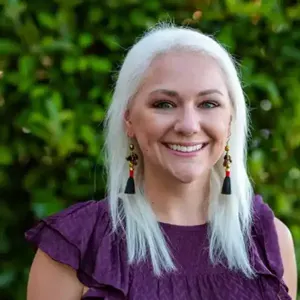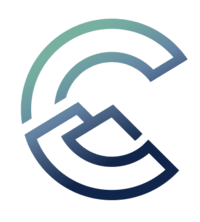
Draper, Utah, United States
Corner Canyon Health Centers
Verified
Verified
This provider’s information has been quality-checked by Recovery.com’s Research Team for accuracy and completeness, including center verification through appropriate third-party organizations.
Joint Commission Accredited
The Joint Commission accreditation is a voluntary, objective process that evaluates and accredits healthcare organizations (like treatment centers) based on performance standards designed to improve quality and safety for patients. To be accredited means the treatment center has been found to meet the Commission's standards for quality and safety in patient care.
Provider's Policy
Corner Canyon works to get single case agreements with Insurance companies who do not have out-of-network coverage. Our insurance experts provide a free, confidential benefit verification so you have a clear picture of what the costs of treatment would be at our facility and how to maximize your insurance benefits. Corner Canyon does not accept Medicaid or Medicare.
Estimated Cash Pay Rate
The cost listed here ($40,500/month) is an estimate of the cash pay price. Center pricing can vary based on program and length of stay. Contact the center for more information. Recovery.com strives for price transparency so you can make an informed decision.
Highlights from the Center
Highlights
These highlights are provided by and paid for by the center.
Customized Treatment Plans
Neuro/Bio Feedback Therapy
Pool
Certified Professionals
About Corner Canyon Health Centers
Corner Canyon Health Centers (Corner Canyon) treats mental health conditions with a comprehensive array of assessments, therapies, and advanced treatments. They address co-occurring substance and behavioral addictions. Thorough clinical assessments and genetic testing give each client a treatment plan personalized to their needs and diagnosis. After residential treatment, clients can attend partial hospitalization and intensive outpatient while living in Corner Canyon’s transitional living home.
Built on Clinically Informed, Innovative Care
Corner Canyon centers treatment on 4 cornerstones: assessment, innovative treatment, brain-based treatment, and transition. They provide health, psychological, and psychiatric assessments. Ketamine-assisted psychotherapy, stellate ganglion block shots, neurofeedback, and nutritional psychiatry help clients recover holistically. In their 6-week ketamine-assisted treatment program, clinically approved clients receive a ketamine shot and a following 1:1 therapy session to process and reflect.
Evidence-Based Therapies for Intensive Healing
Clients at Corner Canyon receive weekly group and 1:1 therapy. Their evidence-based therapies include cognitive behavioral therapy (CBT), dialectical behavioral therapy (DBT), eye movement desensitization and reprocessing therapy (EMDR), accelerated resolution therapy (ART), and equine therapy. Clients can also enjoy holistic therapies like mindfulness meditation and music therapy. Corner Canyon provides an inclusive space for LGBTQIA+ clients, welcoming them to reside with others of their identified gender identity.
Compassionate Mental Health Treatment and Continuing Care
Corner Canyon’s trauma-informed care addresses complex trauma and post-traumatic stress disorder (PTSD), along with other mental health conditions. These include obsessive compulsive disorder (OCD), mood disorders, anxiety disorders, suicidal ideation, and personality disorders. Their location at the foot of the Wasatch Mountains provides unique recreational opportunities throughout the year. Clients can seamlessly transition into Corner Canyon’s outpatient programs, which include flexible partial hospitalization programs (PHPs) and intensive outpatient programs (IOPs). PHP clients are required to reside in Corner Canyon’s 15-bed transitional living home.
Read More

Insurance Accepted
Provider's Policy:Corner Canyon works to get single case agreements with Insurance companies who do not have out-of-network coverage. Our insurance experts provide a free, confidential benefit verification so you have a clear picture of what the costs of treatment would be at our facility and how to maximize your insurance benefits. Corner Canyon does not accept Medicaid or Medicare.
Clinically Informed Mental Health Treatment
Corner Canyon specializes in mental health treatment and treating co-occurring substance and behavioral addictions. Their experienced staff includes a medical director, psychiatrist, clinicians, nurses, therapists, and case managers. Staff provide evidence-based therapies with proven results in treating various mental health conditions, including complex trauma, personality disorders, suicidal ideation, and PTSD.
Comprehensive Assessments
Corner Canyon provides multiple assessments to understand each client, make accurate diagnoses, and create a beneficial treatment plan. Their assessments include blood work, genetic testing, psychological assessments, psychiatric assessments, and health assessments to get a whole-person picture of each client.
Innovative Treatments for Whole-Person Healing
Corner Canyon uses several innovative practices to help clients heal from mental health conditions. These include ketamine-assisted psychotherapy, stellate ganglion block treatment, and neurofeedback. Clinicians approve clients for ketamine treatment, which occurs over 6 weeks. Stellate ganglion block treatment includes 1+ shots, with more provided as needed. Corner Canyon’s neurofeedback technician provides neurofeedback therapy to retrain the brain and correct thought patterns.
A Continuum of Tailored Care
Corner Canyon offers a continuum of care: residential treatment, partial hospitalization, intensive outpatient, and transitional housing. Their partial hospitalization program (PHP) has morning or mid-morning start times. All PHP clients must live in Corner Canyon’s 15-bed transitional home during treatment. In intensive outpatient, clients can attend day or evening programs. Clients living in their transitional living home have dinners and transportation to Corner Canyon’s outpatient treatment.

Center Overview
Estimated Cash Pay Rate
Older Adults
Addiction and mental health treatment caters to adults 55+ and the age-specific challenges that can come with recovery, wellness, and overall happiness.
Executives
Executive treatment programs typically directly support the needs of people who manage businesses and may provide flexible schedules and office space to allow work during treatment.
Young Adults
Emerging adults ages 18-25 receive treatment catered to the unique challenges of early adulthood, like college, risky behaviors, and vocational struggles.
LGBTQ+
Addiction and mental illnesses in the LGBTQ+ community must be treated with an affirming, safe, and relevant approach, which many centers provide.
Midlife Adults
For adults ages 40+, treatment shifts to focus on the unique challenges, blocks, and risk factors of their age group, and unites peers in a similar community.
Professionals
Busy, high-ranking professionals get the personalized treatment they need with greater accommodations for work, privacy, and outside communication.

Treatment Focus
This center specializes in primary mental health treatment and offers programs for co-occurring substance use. You receive collaborative, individualized treatment for whole-person healing.
Treatment
Specializations
Personality Disorders
Personality disorders destabilize the way a person thinks, feels, and behaves. If untreated, they can undermine relationships and lead to severe distress.
Co-Occurring Disorders
A person with multiple mental health diagnoses, such as addiction and depression, has co-occurring disorders also called dual diagnosis.
Depression
Symptoms of depression may include fatigue, a sense of numbness, and loss of interest in activities. This condition can range from mild to severe.
Drug Addiction
Drug addiction is the excessive and repetitive use of substances, despite harmful consequences to a person's life, health, and relationships.
Holistic
A non-medicinal, wellness-focused approach that aims to align the mind, body, and spirit for deep and lasting healing.
LGBTQ+
Addiction and mental illnesses in the LGBTQ+ community must be treated with an affirming, safe, and relevant approach, which many centers provide.
Post Traumatic Stress Disorder
PTSD is a long-term mental health issue caused by a disturbing event or events. Symptoms include anxiety, dissociation, flashbacks, and intrusive thoughts.
Trauma
Some traumatic events are so disturbing that they cause long-term mental health problems. Those ongoing issues can also be referred to as "trauma."
Treatment Services
Day Treatment
In a PHP, patients live at home but follow an intensive schedule of treatment. Most programs require you to be on-site for about 40 hours per week.
Intensive Family Program
Some rehabs offer intensive programs for loved ones. Group and individual therapy sessions help everyone heal, and improve family dynamics.
Intensive Outpatient Program
In an IOP, patients live at home or a sober living, but attend treatment typically 9-15 hours a week. Most programs include talk therapy, support groups, and other methods.
Licensed Primary Mental Health
Some primary care providers offer mental health diagnosis and treatment. This can prevent patients from developing more serious conditions.
Outpatient
During outpatient rehab, patients attend a structured treatment program while continuing to live at home.
Residential
In a residential rehab program, patients live onsite, with access to daily treatment and 24-hour care. An average stay is 30-90 days.
Approaches
Holistic
A non-medicinal, wellness-focused approach that aims to align the mind, body, and spirit for deep and lasting healing.
Individual Treatment
Individual care meets the needs of each patient, using personalized treatment to provide them the most relevant care and greatest chance of success.
Personalized Treatment
The specific needs, histories, and conditions of individual patients receive personalized, highly relevant care throughout their recovery journey.
Twelve Step
Incorporating spirituality, community, and responsibility, 12-Step philosophies prioritize the guidance of a Higher Power and a continuation of 12-Step practices.
Wellness
Wellness philosophies focus on the physical, mental, and spiritual wellness of each patient, helping them restore purpose with natural remedies.
Therapies
1-on-1 Counseling
Patient and therapist meet 1-on-1 to work through difficult emotions and behavioral challenges in a personal, private setting.
Meditation & Mindfulness
A practiced state of mind that brings patients to the present. It allows them to become fully aware of themselves, their feelings, and the present moment.
Play Therapy
This approach is commonly used with children. It incorporates elements of play and self-expression, like boardgames, finger painting, dolls, and blocks.
Trauma-Specific Therapy
This form of talk therapy addresses any childhood trauma at the root of a patient's current diagnosis.
Animal Therapy
Animals can inspire trust and self-worth. In this experiential therapy, guided interactions are used to improve social skills and emotion regulation.
Art Therapy
Visual art invites patients to examine the emotions within their work, focusing on the process of creativity and its gentle therapeutic power.
Biochemical Restoration
This treatment restores any brain and body deficiencies caused by substance abuse through a full detox, followed by supplement replenishment.
Body Image Therapy
Therapists use cognitive behavior techniques to challenge how patients perceive their body and their worth, rewriting negative thoughts and attitudes.
Couples Counseling
Partners work to improve their communication patterns, using advice from their therapist to better their relationship and make healthy changes.
Conditions We Treat
Grief and Loss
Grief is a natural reaction to loss, but severe grief can interfere with your ability to function. You can get treatment for this condition.
Personality Disorders
Personality disorders destabilize the way a person thinks, feels, and behaves. If untreated, they can undermine relationships and lead to severe distress.
ADHD, ADD
ADHD is a common mental health condition caused by dopamine imbalance. Common symptoms include inattention, hyperactivitiy, and impulsivity.
Anxiety
Anxiety is a common mental health condition that can include excessive worry, panic attacks, physical tension, and increased blood pressure.
Bipolar
This mental health condition is characterized by extreme mood swings between depression, mania, and remission.
Chronic Pain Management
Long-term physical pain can have an affect on mental health. Without support, it can also impact your daily life and even lead to addiction.
Depression
Symptoms of depression may include fatigue, a sense of numbness, and loss of interest in activities. This condition can range from mild to severe.
Eating Disorders
An eating disorder is a long-term pattern of unhealthy behavior relating to food. Most people with eating disorders have a distorted self-image.
Gambling
Excessive, repetitive gambling causes financial and interpersonal problems. This addiction can interfere with work, friendships, and familial relationships.
Gaming
Compulsive gaming is most often a problem for children and teens. The disorder can affect physical health, sleep, and the ability to focus at school.
Substances We Treat
Alcohol
Using alcohol as a coping mechanism, or drinking excessively throughout the week, signals an alcohol use disorder.
Benzodiazepines
Benzodiazepines are prescribed to treat anxiety and sleep issues. They are highly habit forming, and their abuse can cause mood changes and poor judgement.
Chronic Relapse
Consistent relapse occurs repeatedly, after partial recovery from addiction. This condition requires long-term treatment.
Co-Occurring Disorders
A person with multiple mental health diagnoses, such as addiction and depression, has co-occurring disorders also called dual diagnosis.
Cocaine
Cocaine is a stimulant with euphoric effects. Agitation, muscle ticks, psychosis, and heart issues are common symptoms of cocaine abuse.
Drug Addiction
Drug addiction is the excessive and repetitive use of substances, despite harmful consequences to a person's life, health, and relationships.
Ecstasy
Ecstasy is a stimulant that causes intense euphoria and heightened awareness. Abuse of this drug can trigger depression, insomnia, and memory problems.
Heroin
Heroin is a highly addictive and illegal opioid. It can cause insomnia, collapsed veins, heart issues, and additional mental health issues.
Methamphetamine
Methamphetamine, or meth, increases energy, agitation, and paranoia. Long-term use can result in severe physical and mental health issues.
Aftercare
Experience
Personal Amenities
Amenities
Special Considerations
Healthy Meals are provided
Great food meets great treatment, with providers serving healthy meals to restore nutrition, wellbeing, and health.
LGBTQ group
Group therapy unites LGBTQ+ patients in a safe and culturally competent setting, encouraging peer support under the expert leadership of a therapist.
Activities
Yoga
Yoga is both a physical and spiritual practice. It includes a flow of movement, breathing techniques, and meditation.
Off-Site Activities
Smoking and Vaping Policy
Professional Staff

ALLY JACKSON
Admissions Director

BRAD CHRISTENSEN
Chief People Officer

CHERYL KEHL
CEO Co-founder and Partner
LCSW

CHRISTOPHER BLACK
Psychiatric Nurse Practitioner
RN, BSN, PMHNP-BC
View More Team Members
Learn more about Corner Canyon Health Centers
Testimonial
I am grateful to have found Corner Canyon Health Centers (CCHC) – it is a well-rounded program with a highly trained team of therapists and staff. I went to CCHC for help with my trauma and eating disorder. CCHC provided a safe place with skilled personnel to help me rediscover my sense of self and how to exist in the world in a meaningful way. CCHC offers a wide-range of evidenced-based modalities and they truly provide individualized care to meet each client’s needs. I benefited greatly from group therapy, individual therapy, EMDR, art therapy and more.
John D.
Accommodations
Food & Nutrition
Treatment
Value
Carol
We love hearing about your treatment experience
Help individuals and families seeking treatment by sharing your first-hand experience with this treatment provider. Review Guidelines.

































